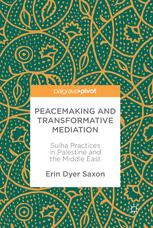

Most ebook files are in PDF format, so you can easily read them using various software such as Foxit Reader or directly on the Google Chrome browser.
Some ebook files are released by publishers in other formats such as .awz, .mobi, .epub, .fb2, etc. You may need to install specific software to read these formats on mobile/PC, such as Calibre.
Please read the tutorial at this link: https://ebookbell.com/faq
We offer FREE conversion to the popular formats you request; however, this may take some time. Therefore, right after payment, please email us, and we will try to provide the service as quickly as possible.
For some exceptional file formats or broken links (if any), please refrain from opening any disputes. Instead, email us first, and we will try to assist within a maximum of 6 hours.
EbookBell Team

4.4
102 reviewsThis book evaluates the potential for the transformative mediation framework to be adopted in a non-western context. Inspired by the premise that mediator ideology exists and has deep impact on process, Robert A. Baruch Bush and Joseph P. Folger articulated the transformative mediation model which itself evolved from a culture of individualism and problem-solving. This theory of conflict transformation has engaged scholars and practitioners across North America, Europe and Australia. The question remains: is the Transformative Mediation Framework relevant outside of the “West”? Through qualitative interviewing with Palestinian practitioners of the traditional conflict resolution process sulha and in-depth research analysis, this study outlines what distinguishes the ideologies and practices of transformative mediation and Palestinian sulha.